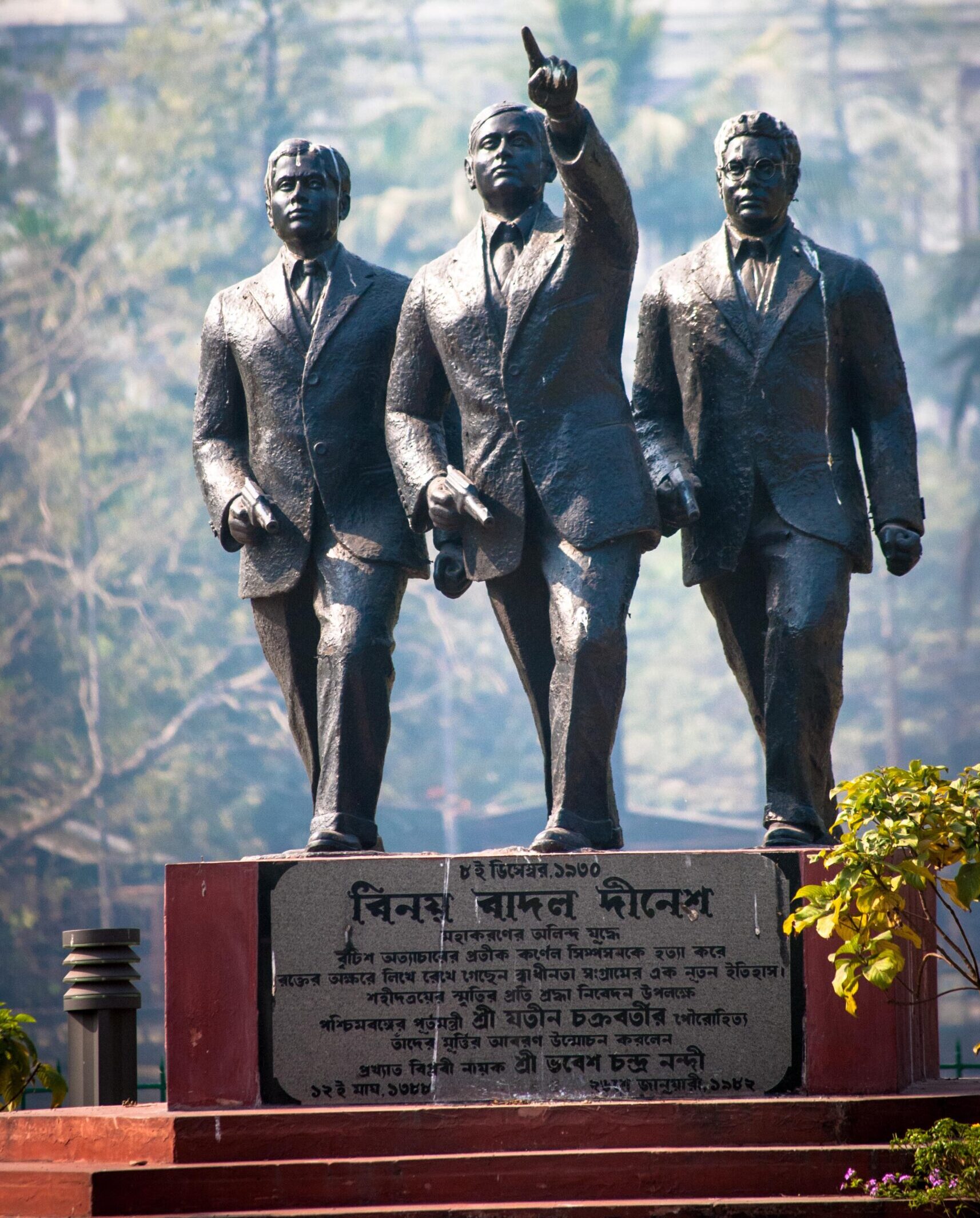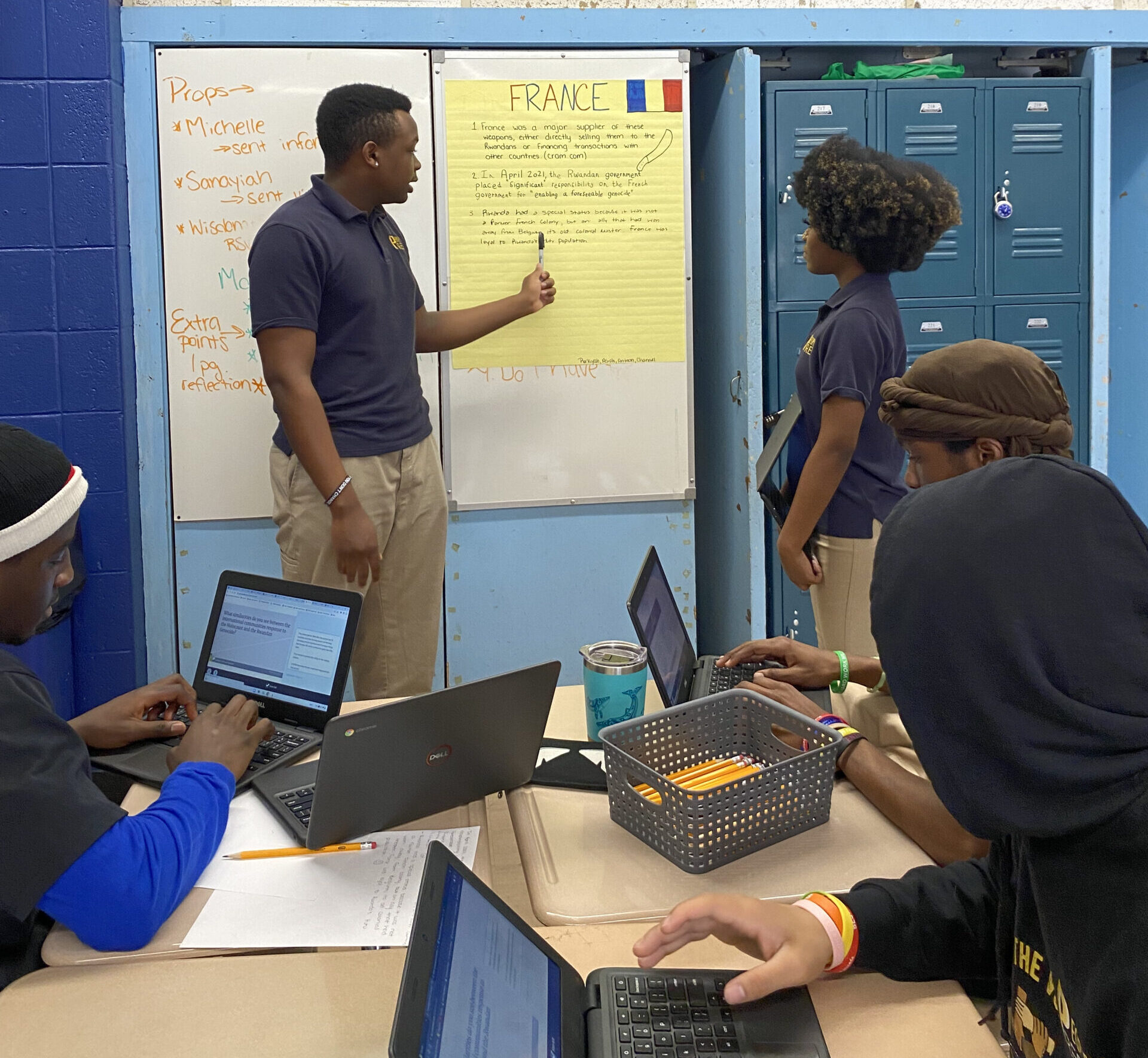Being on the job market can be extremely stressful. The stakes are high, and candidates may feel intense pressures that can trigger all manner of anxieties. Job candidates might find these stresses compounded by nagging worries about things like questions of protocol in the interviewing process. Other forms of social engagement with colleagues can also cause discomfort, whether at the annual meeting or during the on-campus interview. This article will consider a variety of potentially puzzling or uncomfortable scenarios, and offer some reflections and suggestions for handling these encounters with grace and composure.
In addition to the obvious virtues of polite behavior, observing some simple rules of etiquette can also be a helpful coping mechanism for dealing with the pressures of the interview process. Planning ahead and identifying some strategies to mitigate the discomfort of anxiety-producing social encounters can help you keep yourself calm if your tension levels begin to rise.
At the AHA Annual Meeting
The annual meeting is a very social gathering, and you are likely to run into many friends, acquaintances, and colleagues. These encounters can be both enjoyable and disquieting for someone on the job market.
Questions and Conversations
Some of us have wondered about whether there are certain types of questions that are (or, perhaps, should be) off limits in conversations with colleagues who are on the job market. For instance, when one runs into a professional acquaintance, is it okay to ask them whether they have any interviews scheduled, or is that an intrusive question?
Such a question may mean, quite simply, “How are things with you?” Such a question can also seem to be asking either “How good are you?” or “How good am I?”—or even both. When the person asking the question is also on the job market, the question can seem to be an effort to determine his or her own ranking in the competition. What may be a truly interested and well-meaning question can therefore sometimes come off as impertinent and even challenging.
Ultimately, it all depends on the relationship between the two people: Are they friends? Colleagues? Acquaintances? How might the other person receive the question or the sharing of information? Do your best to be sensitive to the nonverbal cues that indicate whether your companion is at ease in the conversation. The absence of ease may have nothing to do with you, but it is a good indicator that the person you’re talking to may not welcome questions about the job search.
Sometimes, the shoe can be on the other foot. It is difficult to know how to respond to questions from friends and colleagues about your own job search. When confronted with questions that you consider inappropriate, remember that you are not obligated to share the information being requested. Be prepared to gracefully change the subject if necessary. Be polite but firm. Keep in mind that many people mean well but may not have well-developed social skills.
Survival Strategies for Brief Encounters
Elevators, breakfast lines, and other sites of incidental encounters at the annual meeting present opportunities for interesting—albeit brief—engagement with colleagues. They can also be settings for awkward social encounters. For instance, an accidental post-interview elevator ride with a search committee member can make you feel like the interview has started all over again. Remember, however, that the committee member accompanying you on the elevator ride might be just as uncomfortable as you are. Think of this as an opportunity to try to put your conversation companion at ease.
There is, of course, no single strategy for doing so. You might begin with a low-key, friendly chat about some innocuous subject. Before the annual meeting, develop a handful of conversation starters to employ when you find yourself in an awkward silence. Read the newspaper. Go to a session soon after you arrive at the annual meeting. Have a question ready for a more experienced meeting attendee. It may seem banal to comment on the weather or a recent sporting outcome, or to ask whether your companion has enjoyed any panels or local attractions. These kinds of pleasantries can be very useful social lubricants, however, and they provide a way to pleasantly pass time that might otherwise be uncomfortably spent. When in doubt, it’s always better to be curious rather than to talk about yourself—unless asked.
The Campus Interview
Putting Yourself at Ease
In its noblest form, etiquette is designed to convey respect and make others feel comfortable. It is nearly impossible to make others feel comfortable, however, unless you have put yourself at ease first. One of the ways you can do this is by being well prepared for your interviews. Here are a few specific issues that may help you organize your thoughts and develop your own preparation strategies:
Come to your interviews well prepared to answer and ask a variety of questions. In the on-campus interview, demonstrate your interest by asking questions about things like your future colleagues’ research, about students, and about faculty in related disciplines. Some job candidates may be too conscientious and suppose that having good manners means one shouldn’t ask practical questions about issues like university resources and benefits for faculty, teaching schedules, reimbursement policies, and leave policies. During the on-campus interview, it is both reasonable and wise to ask questions about anything that might help you determine whether you would like to have this job. While your questions should, of course, be framed politely, there is no reason to be shy.
Remember that in asking questions, it is important to think strategically. For instance, consider whether the institution is oriented more towards teaching, or more towards research. In either case, a question about the kinds of duties, responsibilities, and accomplishments expected of you might best be framed in terms of opportunities. Questions about local amenities should likewise be posed in a positive vein. As much as possible, practice answering questions before your interview so that even under stress the answers will come more easily.
The Campus Visit
The campus visit is a whirlwind experience that requires stamina and calm. One is likely to be on campus for a very long day (or two) packed with activities: meetings with faculty, students, administrators, and librarians, your job talk, possibly a teaching demonstration, and meals with faculty. If you find that you’re not feeling as calm as you would like, remember that you really have good reason to feel more self-confident. You and (usually) just two or three other candidates have been chosen from tens or even hundreds of applicants because of your unique strengths and potential. The members of the search committee are looking for many things, but most of all, they want you to be someone they can imagine as a colleague. It may be helpful to remember that the on-campus interview process is not just a series of gauntlets for you to run. It’s also an opportunity for the committee to get to know you as a scholar, teacher, and colleague. In turn, they will demonstrate to you all that the department and the institution have to offer. It’s during this process that you will show them why you’re a great fit for the job.
Be Respectful of Everybody
The on-campus interview schedule is likely to include opportunities for you to meet with students. Undergraduates and graduate students may be invited to your job talk (and teaching demonstration, if there is one), and faculty and students alike may be invited to ask you questions afterwards. It should go without saying that regardless of whether a question comes from a senior faculty member or a student in her junior year, you should consider the question seriously, and respond graciously—and not defensively—even to hostile questions. Naturally, one should be polite to department and university staff as well. Do not make any assumptions about whose opinions count. You are everyone’s guest.
Addressing Potential Future Colleagues
There was a time when rules of etiquette about forms of address were clear: strangers, new acquaintances, and often old acquaintances addressed one another with a combination of title and surname. Today, there seems to be little consensus about rules of address, and this can create confusion for a job candidate. You want to demonstrate respect for others while also demonstrating that you are ready to engage with with faculty members as a colleague and peer. In a job interview, should you address possible future colleagues using a more formal manner of address, or will that appear too deferential? Is it better to act as if you are almost already a colleague and use first names?
You will probably receive a few clues before the first interview. Pay attention to how the committee chair addresses you, and to how correspondence is signed. Does the chair use only his or her first name in the closing of a letter or e-mail? Does he or she address you informally, by your first name, or more formally, as Ms. or Mr. or Dr. JobCandidate? When your interview begins, listen for how the committee members are introduced. If the chair introduces the search committee members to you as “Professor” or “Doctor” followed by only a surname, this suggests that formal address will be more appropriate. When in doubt, default to a formal style of address. Your new acquaintances can always invite you to address them informally if they wish.
If you were raised in a culture in which formalities are highly prized, addressing faculty members informally can make you anxious rather than put you at ease. In such situations, you may wish to explain that, because of your cultural background, you are more comfortable using formal forms of address with those you have just met. Explaining the reason you prefer formalities should help make it clear that your choice does not reflect a sense of inferiority. Another good strategy is to play it by ear and respond to committee members with the same degree of formality or informality as that with which they address you.
Alcohol Etiquette
Usually, during the campus interview process, there is dinner and wine, or, perhaps, drinks first and then dinner and wine. If you prefer not to have an alcoholic drink, then you should feel entirely free to say so. A simple “no, thank you” is sufficient. If you would like to enjoy a glass of wine, however, you should also feel free to do so. Proceed, of course, with caution. Remember that good hosts will keep refilling your wine glass, and you may be too distracted by conversation to notice. A good strategy is to sip slowly and avoid a refill.
Other Challenges
Know that all manner of odd situations may arise to challenge your equanimity and composure. What do you do, for instance, when an enthusiastic faculty member follows you into the bathroom and engages you in conversation? A simple and direct response, indicating your interest in the conversation but establishing that you will respond in a few moments is perfectly polite and will, hopefully, give you a moment of peace while you attend to private functions. While one cannot anticipate all the ways a moment may turn suddenly awkward, keeping in mind that such potentially uncomfortable situations might arise will help you negotiate them. Being prepared by remembering the basic principles outlined in this essay will always pay off.
After the Campus Interview
Thank-You Notes
Most consider it good form to send thank-you notes or e-mails after interviews, whether the interview was conducted by telephone, at the annual meeting, or on campus. Written expressions of thanks should be professional, which is to say, both brief and polite. Expressing gratitude through a note demonstrates the kind of courtesy and thoughtfulness that most of us would hope to find in a potential colleague. Keep in mind, though, that committees are looking for a peer, not a supplicant. While not necessarily the rule, search committees have been known to judge effusiveness in a thank-you note as a sign that the applicant is not quite ready to act as an equal within the department. Your written correspondence—like everything else you do or say during the search process— should convey your readiness to enter the historical profession as a colleague.
Some Concluding Thoughts
Formal rules of etiquette don’t matter nearly as much as following a simple principle: be as gracious and considerate of others’ feelings as you can. A friend’s wise grandmother believed that having good manners meant that you didn’t notice when others breached the rules. Remember that this doesn’t mean giving up your right to respond honestly to another person’s less thoughtful behavior.
Still, it may also be helpful to remember that most of us are fully capable of committing inadvertent social gaffes; some of us may have even been known to commit one or two in our lifetimes. This knowledge might make us inclined to be a little bit generous when others commit social blunders, and to remember that such instances are rarely personal.
For the AHA’s recommendations on etiquette for departments and hiring committees, please see the AHA Resource Library.



